In the ever-evolving landscape of kitchen appliances, the air fryer has emerged as a game-changer, transforming the way we cook and consume. This nifty gadget has garnered a significant following, especially in the Western markets, where health-conscious consumers are seeking alternatives to traditional frying methods. As the demand for air fryers continues to soar, so does the importance of ensuring these products are manufactured ethically and responsibly. This is where BSCI-audited air fryer manufacturers play a pivotal role, not only in meeting consumer expectations but also in shaping the future of the industry.
The Rise of Air Fryers in the Western Markets
Air fryers have been quietly revolutionizing kitchens across the Western markets, becoming a staple in homes from New York to Paris and from London to Los Angeles. Once a niche product, these appliances have surged in popularity, largely thanks to their health benefits and convenience. With their ability to cook crispy and delicious food with less oil than traditional frying methods, air fryers have captured the attention of health-conscious consumers and busy professionals alike.
The compact size and energy efficiency of air fryers have also made them a favorite among eco-conscious consumers. They are perfect for solo cooks and families, offering a versatile cooking solution that can handle everything from fried chicken to roasted vegetables. As the awareness of heart-healthy diets grows, the demand for air fryers has soared, making them a must-have in modern kitchens.
In Europe, the air fryer market has seen particularly rapid growth. Countries like Germany, the UK, and the Netherlands have embraced these appliances, leading the charge in adoption rates. The Scandinavian region, known for its emphasis on health and sustainability, has also seen a significant uptick in air fryer sales. The trend is not limited to urban areas; even in rural Europe, the appeal of air fryers is undeniable.
North America, while traditionally slower to adopt new kitchen technologies, has caught up with a fervor. The U.S. and Canada have seen a surge in air fryer sales, with major retailers reporting year-over-year increases. This shift is partly due to the influence of food bloggers and chefs who have showcased the capabilities of air fryers in creating restaurant-quality meals at home.
One of the key factors driving the rise of air fryers is the perception of health benefits. Unlike deep-frying, which involves submerging food in oil, air frying uses hot air to circulate around the food, creating a crispy outer layer while reducing the overall fat content. This has led to a surge in interest among consumers who are looking to incorporate healthier cooking methods into their daily routines.
Another contributing factor is the convenience factor. Air fryers are easy to use, with simple controls and minimal clean-up. They often come with various accessories and settings, making them suitable for a wide range of cooking tasks. This convenience has been a major draw for busy individuals who want to enjoy delicious food without the hassle of traditional frying.
The rise of air fryers has also been fueled by the growing trend of home cooking and baking. As people seek to spend more time at home, they are looking for ways to improve their culinary skills and experiment with new recipes. Air fryers offer a way to achieve professional-level results without the need for a deep fryer or a high-fat cooking method.
Retailers have played a significant role in the air fryer’s rise to prominence. Supermarkets and department stores have featured them prominently in their aisles, often highlighting the health benefits and offering demonstrations to potential buyers. Online retailers have also capitalized on the trend, with many offering air fryers at competitive prices and with the convenience of home delivery.
Manufacturers have responded to the demand by introducing a wide range of air fryer models, each with its unique features and design. From countertop models to those that can be built into kitchen cabinets, the variety is impressive. Some models come with features like digital displays, automatic shut-off, and even the ability to connect to a smartphone app for remote control and monitoring.
The popularity of air fryers has also had a ripple effect on related products. Accessories such as air fryer baskets, lids, and recipe books have become increasingly popular, providing consumers with everything they need to get the most out of their air fryers.
In conclusion, the rise of air fryers in the Western markets is a testament to the evolving demands of consumers and the continuous innovation in kitchen appliances. As people seek healthier options, convenience, and the ability to cook a variety of dishes at home, air fryers have emerged as a versatile and attractive choice. The future looks bright for these appliances, as their popularity continues to grow and more consumers discover the joy of crispy, healthy cooking.
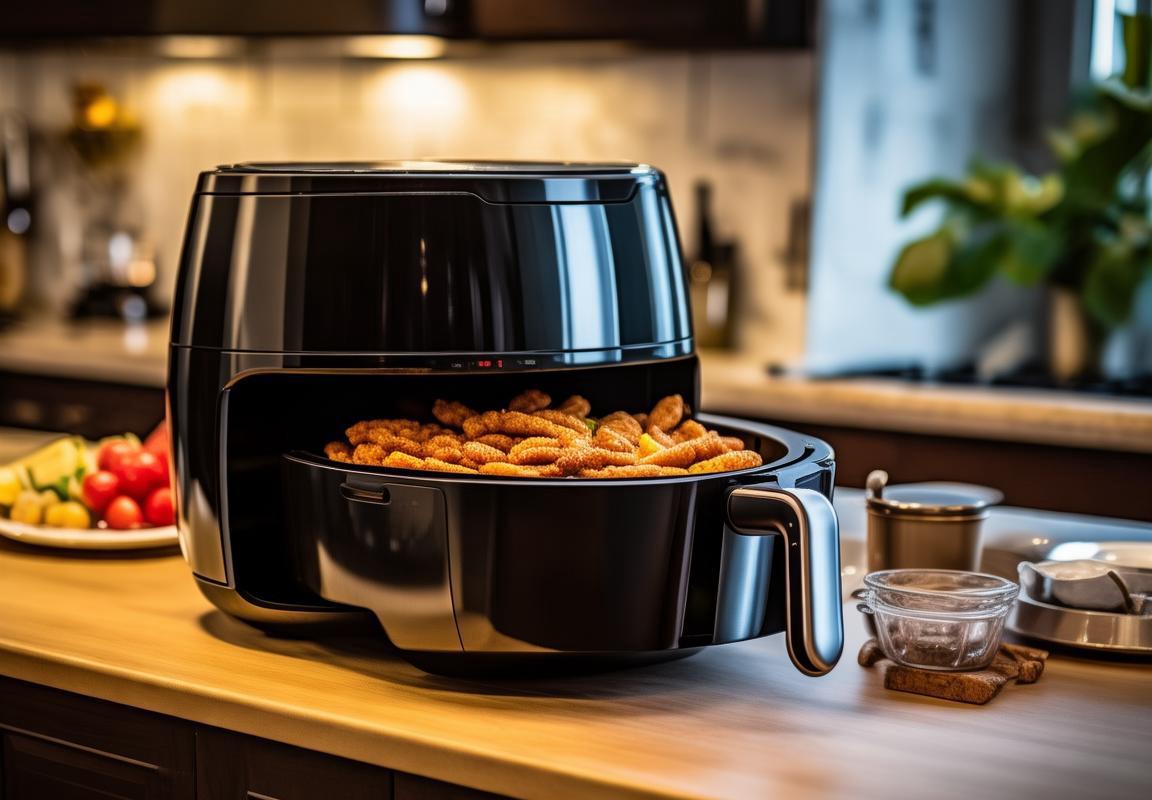
The Importance of BSCI Auditing
In the global manufacturing landscape, the BSCI (Business Social Compliance Initiative) auditing process has emerged as a pivotal standard for ensuring ethical production practices. This comprehensive framework addresses labor rights, environmental impact, and social responsibility, making it a crucial tool for companies looking to uphold their brand values and customer trust.
One of the primary reasons for the importance of BSCI auditing is the safeguarding of workers’ rights. The initiative mandates that manufacturers adhere to International Labor Organization (ILO) conventions, ensuring that employees are not subjected to child labor, forced labor, or discrimination. By undergoing BSCI audits, companies can demonstrate a commitment to fair labor practices, which is increasingly valued by consumers and investors alike.
The environmental considerations are another critical aspect of BSCI auditing. In today’s climate-conscious world, the way products are manufactured has a significant impact on the planet. BSCI standards require manufacturers to minimize waste, reduce emissions, and manage resources sustainably. This not only helps companies reduce their carbon footprint but also positions them as leaders in eco-friendly practices.
Social responsibility is at the heart of BSCI auditing, and it encompasses more than just environmental concerns. It involves ensuring safe and healthy working conditions, providing fair wages, and fostering a diverse and inclusive workplace culture. These practices contribute to a positive work environment and can enhance the reputation of a company, as consumers are more likely to support brands that contribute positively to society.
Transparency is a cornerstone of BSCI auditing. Manufacturers are required to provide clear and accurate information about their supply chains, allowing for greater accountability. This level of transparency is not just beneficial for ethical reasons; it also helps businesses to manage risks and identify potential areas for improvement. In an age where data breaches and supply chain issues can have catastrophic consequences, BSCI auditing helps to build a more resilient and trustworthy supply chain.
The quality assurance aspect of BSCI auditing is equally important. It ensures that products meet the highest standards of safety and quality, which is essential for consumer confidence. By certifying that their products are made with care and integrity, companies can differentiate themselves in a crowded marketplace.
For consumers, the importance of BSCI auditing cannot be overstated. It means that the products they purchase are likely to be made under ethical conditions, with a focus on worker welfare and environmental protection. This knowledge can be a significant factor in purchasing decisions, especially among the increasingly socially and environmentally conscious consumer base.
Investors are also increasingly interested in the social and environmental impact of the companies they support. BSCI auditing provides a clear framework for evaluating these factors, making it easier for investors to align their portfolios with their values. Companies that undergo BSCI audits may also attract more funding due to the lower risks associated with unethical practices.
The regulatory landscape is also changing to embrace BSCI-like standards. Governments and regulatory bodies are increasingly acknowledging the importance of ethical manufacturing and are introducing policies that incentivize or require compliance with such initiatives. This trend only reinforces the importance of BSCI auditing for businesses looking to remain compliant with emerging legal requirements.
Lastly, the competitive advantage that BSCI auditing provides is significant. In a world where consumers are more aware and demanding, companies that can prove their commitment to ethical manufacturing are likely to outperform their competitors. This advantage extends beyond immediate sales and can lead to long-term market leadership.
In conclusion, BSCI auditing is a multifaceted initiative that plays a crucial role in shaping the ethical landscape of the manufacturing industry. Its impact is felt across the supply chain, from the factory floor to the consumer’s home, and it is a testament to the power of responsible business practices in fostering a sustainable and equitable future.

The Role of BSCI-Audited Air Fryer Manufacturers
In the rapidly evolving kitchen appliance market, the rise of air fryers has been nothing short of a revolution. BSCI-audited air fryer manufacturers play a pivotal role in this transformation, ensuring that the products they offer not only meet consumer demands but also adhere to stringent ethical and social compliance standards. Here’s a closer look at how these manufacturers are shaping the industry.
BSCI auditing provides a framework for these manufacturers to ensure that their supply chains operate with integrity. This means that from the sourcing of raw materials to the final assembly of the air fryers, every step is scrutinized for ethical labor practices, environmental responsibility, and social accountability. This comprehensive approach is crucial in maintaining the brand reputation and consumer trust.
One of the key roles of BSCI-audited air fryer manufacturers is to prioritize the safety and health of their consumers. These manufacturers invest in rigorous quality control processes, which include testing for harmful substances and ensuring that their products meet or exceed global safety standards. This commitment to safety is particularly important as air fryers gain popularity due to their perceived health benefits over traditional deep-frying methods.
The BSCI auditing process also encourages transparency within the supply chain. Manufacturers must disclose their suppliers, labor conditions, and environmental impact, which fosters a culture of openness. This transparency is a significant draw for consumers who are increasingly aware of the importance of sustainability and ethical manufacturing practices.
Innovation is a cornerstone of the air fryer industry, and BSCI-audited manufacturers are at the forefront of this trend. They are not only focused on developing new features that enhance the cooking experience but also on integrating cutting-edge technology that makes air fryers more energy-efficient and user-friendly. This innovation is driven by a desire to offer the best possible product to consumers without compromising on social and environmental standards.
The role of BSCI-audited air fryer manufacturers also extends to their contribution to local communities. By adhering to fair labor practices and providing a safe working environment, these manufacturers help to create jobs and support local economies. This social investment is a testament to their commitment to more than just producing a product; they are investing in the well-being of the people involved in the production process.
In the competitive landscape of the kitchen appliance market, BSCI-audited manufacturers differentiate themselves through their commitment to social compliance. They understand that ethical practices are not just a moral imperative but also a strategic advantage. By demonstrating their dedication to responsible business, these manufacturers can command premium pricing and secure a loyal customer base.
Moreover, the BSCI auditing process encourages continuous improvement. Manufacturers are regularly assessed and are required to address any identified issues promptly. This ensures that the air fryers they produce are not just compliant with current standards but are also poised to meet future challenges, such as evolving consumer preferences and emerging regulatory requirements.
The global reach of BSCI-audited air fryer manufacturers is another testament to their influence. They operate across borders, bringing their standards of social compliance to every market they serve. This global perspective is essential for understanding and catering to the diverse needs of international consumers while maintaining a consistent level of quality and ethics.
In conclusion, the role of BSCI-audited air fryer manufacturers is multifaceted. They are not just producers of kitchen appliances; they are guardians of ethical business practices, innovators in technology, and contributors to the well-being of their employees and the communities in which they operate. As the air fryer market continues to grow, these manufacturers will undoubtedly play a crucial role in shaping its future.

Key Features of BSCI-Audited Air Fryers
The air fryer market has seen a significant surge, particularly in Western countries where health-conscious consumers are seeking alternative cooking methods to reduce oil intake. BSCI-audited air fryer manufacturers have emerged as a beacon of quality and social responsibility. Here are some key features that set these air fryers apart:
-
Enhanced Energy EfficiencyBSCI-audited air fryer manufacturers prioritize energy efficiency, ensuring that their products use less electricity while still delivering exceptional cooking results. These models often come with smart heating systems that maintain consistent temperatures, reducing energy consumption over time.
-
Healthier Cooking MethodsThese air fryers are designed with the health benefits of consumers in mind. By using hot air to circulate around the food, they cook food with up to 80% less oil compared to traditional frying methods. This not only helps in reducing calorie intake but also maintains the nutritional value of the food.
-
Advanced Temperature ControlOne of the standout features of BSCI-audited air fryers is their advanced temperature control. Users can precisely set the temperature and cooking time, allowing for greater flexibility in preparing a variety of recipes. Whether you’re baking, roasting, or frying, these air fryers can handle it all with ease.
-
Space-Saving DesignLiving in urban areas often means dealing with limited kitchen space. BSCI-audited air fryers are designed to be compact and space-saving, making them a practical choice for anyone looking to add a versatile kitchen appliance without cluttering their countertop.
-
Non-Toxic and Easy-to-Clean MaterialsThe health of both users and the environment is a top priority for BSCI-audited manufacturers. These air fryers are made with non-toxic materials, such as BPA-free plastic and PFOA-free coatings, ensuring that no harmful substances leach into the food. Additionally, their design features removable parts that are easy to clean, simplifying maintenance.
-
User-Friendly InterfaceModern BSCI-audited air fryers come with intuitive interfaces, often including digital displays and simple control panels. This makes it easy for users of all ages and technical abilities to operate the appliance with ease.
-
Multi-FunctionalityThese air fryers aren’t just limited to air frying; they often offer a range of additional functions such as roasting, baking, and even dehydrating. This versatility allows users to prepare a wide array of dishes without the need for multiple appliances.
-
Safety FeaturesSafety is a paramount concern for BSCI-audited manufacturers. Their air fryers come with features like automatic shut-off when the appliance is left unattended or when the temperature reaches unsafe levels. Some models also have cool-touch surfaces to prevent accidental burns.
-
Warranty and Customer ServiceWith a BSCI audit, manufacturers are committed to maintaining high standards in their production processes. This often translates into robust warranties and excellent customer service, providing peace of mind to consumers.
-
Environmental ResponsibilityLastly, BSCI-audited air fryers are generally more environmentally friendly than their counterparts. They are designed with the end of life in mind, with materials that are easy to recycle or dispose of responsibly.
By focusing on these key features, BSCI-audited air fryer manufacturers have not only provided consumers with a healthier alternative to traditional cooking methods but have also set a standard for social responsibility and sustainable business practices.
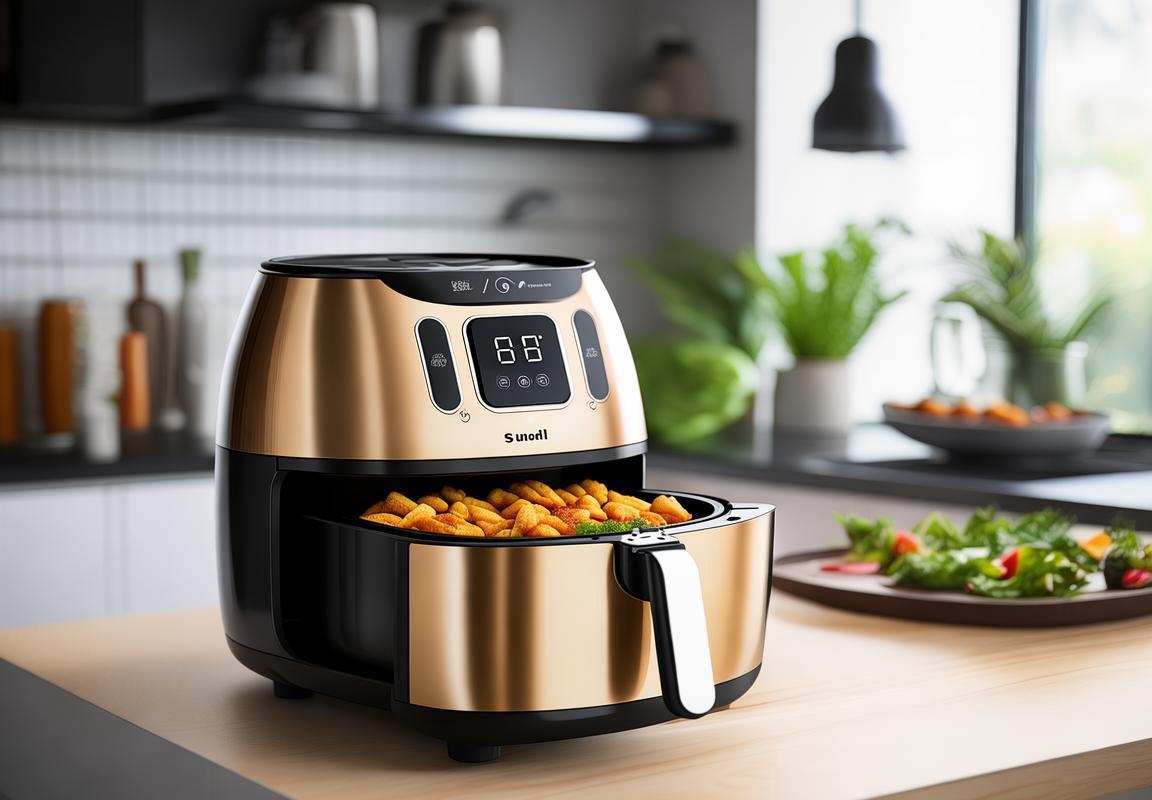
Market Trends and Consumer Preferences
In the ever-evolving landscape of kitchen appliances, several trends and consumer preferences have emerged, shaping the market for air fryers. These trends not only reflect the changing tastes of consumers but also influence the direction in which manufacturers are focusing their innovation and design efforts.
The surge in health consciousness has led to a marked preference for air fryers that offer healthier cooking options. Consumers are increasingly seeking appliances that can replicate the taste and texture of fried foods without the added fat and calories. This shift has prompted manufacturers to develop air fryers with adjustable temperature controls and pre-programmed settings for a variety of health-conscious recipes.
Smart technology integration has become a significant trend in the air fryer market. Users now expect their appliances to be connected to their smartphones or other devices, allowing for remote control and monitoring. This connectivity not only adds convenience but also enables users to track cooking times and temperatures more effectively, ensuring that their meals are perfectly cooked every time.
Energy efficiency is another key concern for consumers. With rising energy costs and a growing environmental awareness, air fryers that consume less electricity are becoming more attractive. Manufacturers are responding by producing air fryers with advanced heating elements and insulation, which not only reduce energy use but also maintain even cooking temperatures for better results.
Sustainability has also become a major driver in consumer preferences. People are looking for appliances that are not only energy-efficient but also made from sustainable materials. BSCI-audited air fryer manufacturers are stepping up to meet this demand by ensuring that their supply chains are environmentally responsible, using recycled materials, and promoting ethical manufacturing practices.
The compact and space-saving design of air fryers has been a hit with consumers who live in smaller living spaces or have limited kitchen storage. Modern air fryers are designed to be sleek and lightweight, making them easy to store when not in use. This trend has spurred the creation of countertop models that can fit seamlessly into any kitchen setting.
Aesthetic appeal is now a crucial factor in the purchasing decision. Consumers are not just looking for functional appliances but also for those that complement their kitchen decor. Air fryers with stylish designs, such as those with metallic finishes or modern shapes, are gaining popularity as they add a touch of elegance to the kitchen.
Safety features have also become a priority for consumers. Air fryers with features like automatic shut-off, non-slip bases, and cool-to-the-touch exteriors are becoming standard, providing peace of mind for users. These safety enhancements are particularly important for families with children, who may be more prone to accidents around the kitchen.
The demand for versatility in kitchen appliances is on the rise, and air fryers are responding by offering a range of functionalities. Many modern air fryers can also roast, bake, and dehydrate, making them a versatile choice for a variety of cooking needs. This versatility is appealing to consumers who want to minimize the number of appliances they need to buy.
Customization is another area where consumer preferences are shaping the market. Users are looking for air fryers with adjustable settings and customizable cooking programs to cater to their specific preferences and dietary needs. This could include features like adjustable temperature controls, timer settings, and even the ability to set specific cooking times for different ingredients.
Lastly, the emphasis on convenience is undeniable. Consumers are willing to invest in appliances that save time and effort. Air fryers that offer quick-cook settings, pre-programmed recipes, and easy-to-clean components are highly sought after. The ability to cook a meal with minimal effort and cleanup is a significant draw for busy individuals and families.
As the market for air fryers continues to grow, these trends and consumer preferences are likely to influence the development of new products and features. The manufacturers that stay attuned to these changes will be the ones that capture the hearts and minds of consumers, driving the continued rise of air fryers in the market.
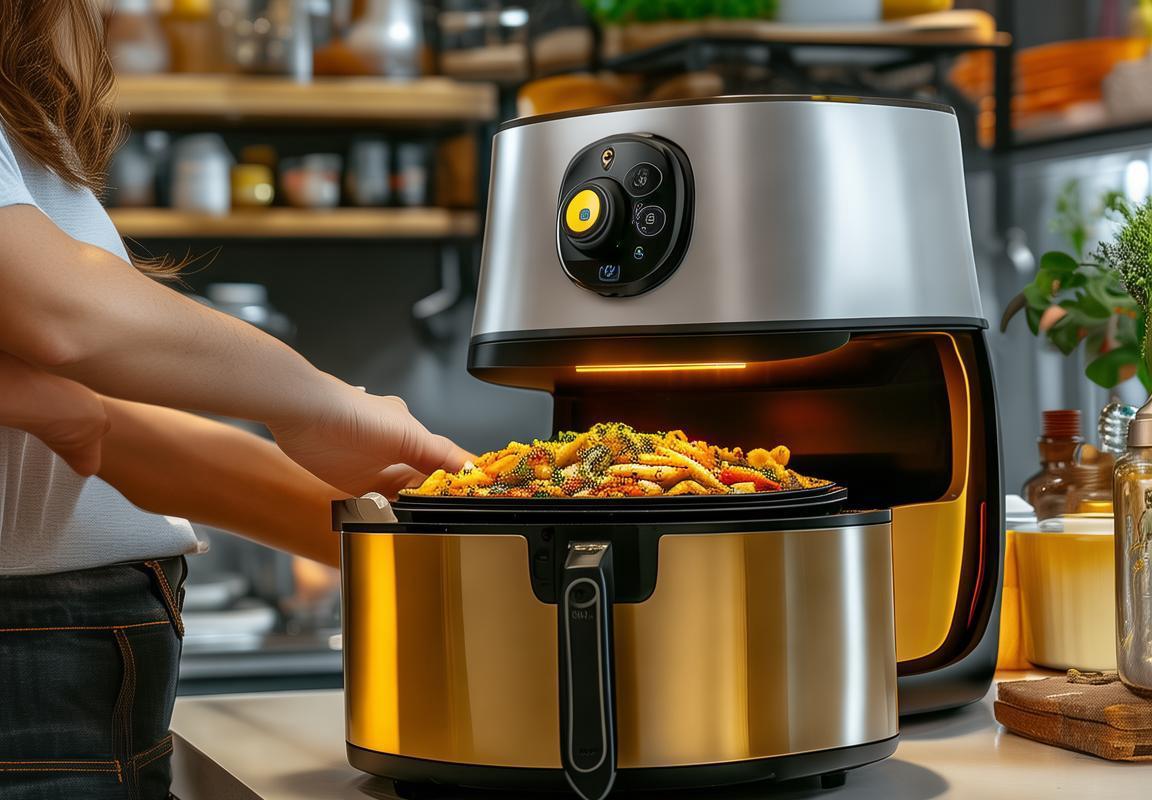
Data-Driven Insights into Air Fryer Sales
The air fryer market has seen a surge in sales, and delving into the data reveals some fascinating insights. From regional popularity to consumer demographics, the numbers paint a clear picture of the trends shaping this sector.
Consumer Adoption by RegionSales data indicates a significant uptick in air fryer purchases across various regions. North America has been a leading market, with the United States and Canada showing a consistent increase in demand. Europe follows closely behind, with countries like the UK, Germany, and France leading the charge. These regions have seen a shift from traditional cooking methods to healthier alternatives, making air fryers a popular choice.
Demographics of Air Fryer BuyersThe typical air fryer buyer is often a health-conscious consumer who is interested in reducing fat intake. However, the demographic is broadening. Younger consumers, particularly those aged 18-34, are driving sales with their preference for convenience and innovative kitchen gadgets. Additionally, families with an interest in home cooking and meal prepping are also significant buyers.
Seasonal Fluctuations in SalesAir fryer sales tend to follow seasonal patterns. The peak season typically occurs during the fall and winter months when consumers are looking for ways to enjoy comfort foods with less guilt. Sales also see a surge during holiday seasons, as families gather and seek out healthier cooking options. Conversely, sales may dip during the summer months as consumers opt for outdoor grilling and lighter meals.
Product Innovations and Their ImpactThe introduction of new features and technologies has had a substantial impact on air fryer sales. Smart air fryers that can be controlled via smartphone apps have seen a surge in popularity. Additionally, the integration of air fryers with other kitchen appliances, such as ovens or microwaves, has created a new category of multi-functional kitchen gadgets. These innovations are not only driving sales but also appealing to consumers who value efficiency and versatility.
Price Sensitivity and Market SegmentationPrice sensitivity plays a crucial role in air fryer sales. While there is a growing market for premium air fryers, there is also a significant segment of consumers who prefer budget-friendly options. Market segmentation has led to a diverse range of air fryers, catering to different price points and features. This has allowed manufacturers to tap into various consumer segments and increase their market share.
Sales Performance of Different BrandsThe sales performance of different air fryer brands varies widely. Market leaders often have a strong presence in retail stores and online platforms. They benefit from brand recognition and a loyal customer base. However, newer brands that focus on innovation and unique selling propositions are gaining traction. These brands are often more agile and can quickly adapt to changing consumer preferences.
Global Distribution and Export TrendsThe global distribution of air fryers has expanded significantly. Countries with emerging middle classes are showing a growing interest in air fryers, leading to increased exports from major manufacturing hubs. The United States and China are the leading exporters, with their products being shipped to various countries across the globe. This international demand is fueling the growth of the air fryer market.
Consumer Reviews and Online InfluenceConsumer reviews and online influence have a substantial impact on air fryer sales. Positive reviews and testimonials can significantly boost sales, while negative feedback can deter potential buyers. Social media influencers and bloggers play a pivotal role in shaping consumer perceptions and driving sales. Brands that actively engage with these influencers and leverage positive online buzz are often more successful in the market.
The Role of Retailers and Online PlatformsRetailers and online platforms are crucial in the distribution of air fryers. Brick-and-mortar stores provide a tangible shopping experience, while online platforms offer convenience and a wide range of options. The integration of these channels has allowed manufacturers to reach a broader audience. Retail partnerships and exclusive deals can also significantly impact sales figures.
In conclusion, the data-driven insights into air fryer sales highlight the dynamic nature of the market. From regional adoption to demographic trends, the data underscores the importance of innovation, pricing strategies, and consumer engagement in driving sales. As the market continues to evolve, manufacturers and retailers must stay attuned to these insights to capitalize on the opportunities presented by the air fryer boom.

The Competitive Landscape for BSCI-Audited Manufacturers
In the ever-evolving landscape of kitchen appliances, BSCI-audited manufacturers have carved out a niche for themselves, offering consumers a blend of quality, safety, and ethical production. This competitive landscape is shaped by several key factors that set these brands apart.
The demand for sustainable and ethical products has surged, with consumers increasingly looking for brands that align with their values. BSCI-audited manufacturers have capitalized on this trend, ensuring that their supply chains are transparent and socially responsible.
These brands often boast innovative designs that cater to the latest kitchen trends. From compact, countertop models to multi-functional units that can replace several appliances, the variety offered by BSCI-audited manufacturers has expanded, appealing to a wide range of consumers.
In terms of technology, BSCI-audited air fryer manufacturers have embraced advanced features that not only enhance performance but also energy efficiency. This focus on innovation has allowed them to compete with non-audited brands on both quality and price.
The competitive landscape is also influenced by the global sourcing strategy of these manufacturers. By sourcing components from various regions, they can optimize costs and offer competitive pricing, which is a significant draw for budget-conscious consumers.
Certified safety standards are a cornerstone of BSCI-audited brands. With rigorous testing and compliance with international safety regulations, these manufacturers ensure that their products are reliable and free from harmful substances.
The rise of e-commerce has opened up new avenues for BSCI-audited manufacturers to reach a broader audience. Online marketplaces have become a key battleground, where these brands compete on customer reviews, brand reputation, and product features.
In the realm of marketing, BSCI-audited manufacturers have leveraged the power of storytelling to connect with consumers on an emotional level. By highlighting their commitment to ethical production and community impact, they create a narrative that resonates with values-driven buyers.
The competitive landscape is also defined by the level of customer service provided. BSCI-audited brands often offer exceptional after-sales support, which includes detailed user manuals, troubleshooting guides, and responsive customer care teams.
Collaborations with renowned chefs and influencers have become a common strategy for BSCI-audited manufacturers. These partnerships not only boost brand visibility but also provide consumers with confidence in the quality and performance of the products.
The competitive edge of BSCI-audited manufacturers is further solidified by their commitment to continuous improvement. They invest in research and development to stay ahead of the curve, offering products that are not just cutting-edge but also sustainable and socially responsible.
In the face of environmental concerns, these brands have taken steps to reduce their carbon footprint. From using eco-friendly packaging to supporting initiatives that promote recycling and waste reduction, BSCI-audited manufacturers are leading the charge towards a greener future.
The competitive landscape is also shaped by the diversity of product lines offered by BSCI-audited manufacturers. They cater to different segments of the market, from single-use appliances for occasional cooks to comprehensive collections for professional chefs and home cooks alike.
Lastly, the competitive edge of BSCI-audited manufacturers is underpinned by their ability to adapt to changing consumer demands. Whether it’s through embracing new technologies or responding to shifts in dietary preferences, these brands remain agile and responsive to market trends.

Case Studies: Success Stories of BSCI-Audited Air Fryer Brands
In the world of kitchen appliances, air fryer brands that undergo BSCI (Business Social Compliance Initiative) auditing have carved out a niche for themselves. These brands, known for their commitment to ethical manufacturing and social responsibility, have several success stories that highlight their dedication to quality and sustainability. Let’s delve into some of these tales of triumph.
One such brand is EcoChef, a company that has gained significant traction by offering a range of BSCI-audited air fryers. Their success can be attributed to their focus on energy efficiency and eco-friendly materials. Consumers have responded positively to EcoChef’s commitment to reducing their carbon footprint, with sales figures reflecting a growing market share.
EcoChef’s air fryers are not only eco-conscious but also technologically advanced. The brand has integrated smart features that allow users to monitor and control their cooking process remotely, enhancing convenience and safety. This has been a game-changer for many consumers who appreciate the ability to enjoy crispy, healthy fried foods without the guilt.
Another success story comes from the brand HealthyBake, which has managed to stand out in a crowded market by emphasizing health and wellness. Their BSCI-audited air fryers are designed with health-conscious consumers in mind, offering models that reduce oil usage by up to 80% compared to traditional deep fryers.
HealthyBake’s success is also tied to their commitment to transparency. The brand provides detailed information about the sourcing of their materials and the working conditions of their manufacturing partners. This level of disclosure has resonated with consumers who are increasingly concerned about the ethical implications of their purchases.
The brand EasyCook has found its success in catering to the busy lifestyles of modern consumers. Their BSCI-audited air fryers are known for their quick cooking times and ease of use. By focusing on simplicity and efficiency, EasyCook has managed to capture the attention of those who prefer quick and hassle-free meal preparation.
One of the key factors contributing to EasyCook’s success is their partnership with local communities. The brand supports local suppliers and manufacturers, ensuring that their products are not only convenient but also contribute to the local economy. This community-driven approach has helped EasyCook build a loyal customer base.
GreenGourmet, another BSCI-audited air fryer brand, has made waves with its innovative designs and sustainable practices. The brand has partnerships with renewable energy suppliers, ensuring that their manufacturing process is as eco-friendly as possible. Their air fryers are crafted from recycled materials, and they offer a range of colors that appeal to a wide audience.
GreenGourmet’s success lies in their ability to connect with consumers on a personal level. The brand educates its customers about the benefits of air frying and the importance of choosing appliances that align with their values. This approach has helped GreenGourmet build a community of eco-conscious consumers who are passionate about healthy living and sustainability.
The brand SmartFry has capitalized on the trend towards smart technology by integrating their air fryers with smart kitchen systems. Their BSCI-audited appliances can be controlled via smartphone apps, allowing users to adjust settings and monitor their cooking process from anywhere. This level of connectivity has been a hit with tech-savvy consumers who are looking for the latest in kitchen innovation.
SmartFry’s success is further bolstered by their dedication to customer service. The brand offers a comprehensive warranty and exceptional support, ensuring that their customers feel confident in their purchase. This commitment to customer satisfaction has helped SmartFry establish a reputation for reliability and excellence.
In the realm of BSCI-audited air fryer brands, these success stories stand out as shining examples of what can be achieved when companies prioritize ethical manufacturing, sustainability, and customer satisfaction. From EcoChef’s eco-friendly materials to HealthyBake’s health-focused designs, each brand has found its unique way to connect with consumers and carve out a successful niche in the market. These stories serve as inspiration for other brands looking to follow in their footsteps, proving that ethical business practices can indeed lead to significant commercial success.
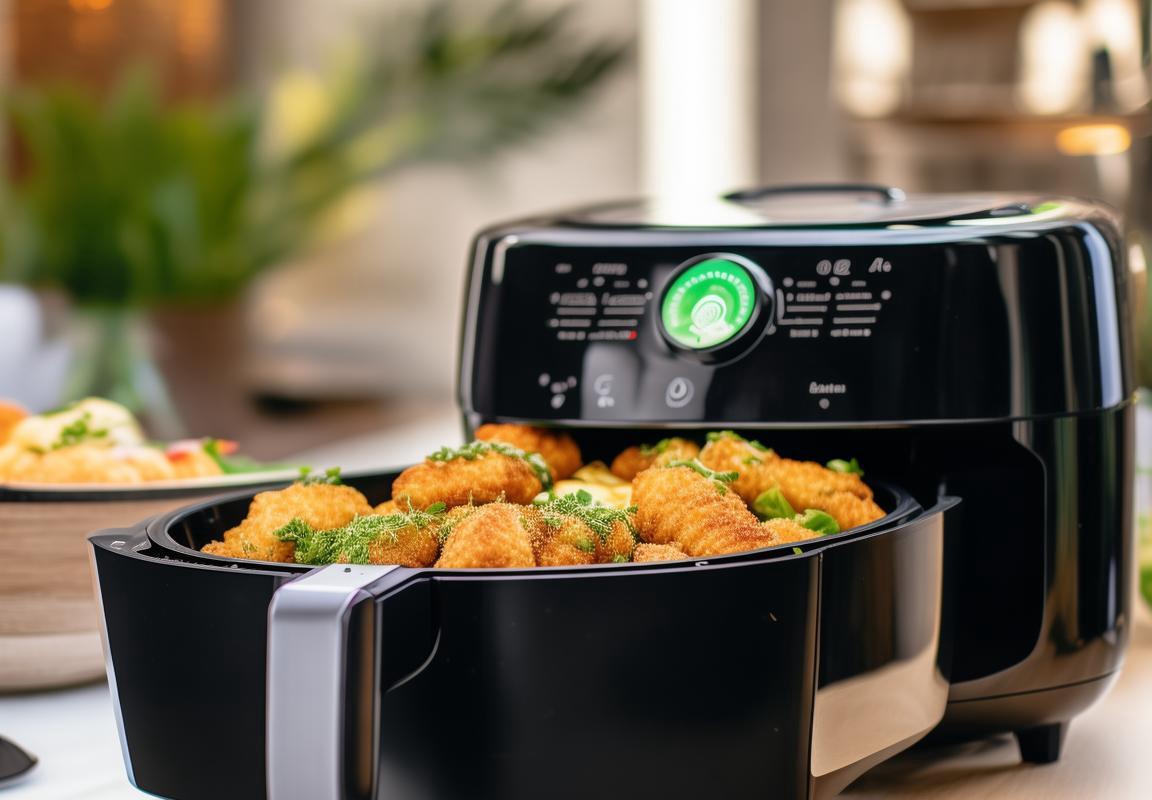
Future Outlook: Predictions for the Air Fryer Market
The air fryer market has seen a remarkable transformation in recent years, shifting from a niche product to a staple in many kitchens. This shift is not just a fad but a testament to the evolving consumer preferences and market trends that are reshaping the landscape. Let’s delve into some of the key factors that are influencing the future outlook for the air fryer market.
Consumer health consciousness continues to rise, with an increasing number of individuals looking for healthier cooking alternatives. This trend is expected to sustain the demand for air fryers, as they offer a solution that allows for fried food with significantly less oil, thus reducing the calorie content. The convenience of air frying, which allows for easy cleaning and minimal mess, also appeals to busy consumers who want to enjoy delicious meals without the hassle of traditional frying methods.
Technological advancements are another driving force. Smart air fryers with integrated apps and remote controls are becoming more common, offering users the ability to monitor and control their cooking from their smartphones. This level of connectivity and control enhances the user experience and can lead to higher customer satisfaction and loyalty.
The global market for air fryers is expanding rapidly, with significant growth occurring in regions such as Asia, Latin America, and Eastern Europe. This expansion is fueled by rising incomes and a growing interest in Western-style cooking techniques. As these markets mature, they are likely to adopt similar trends seen in Western countries, such as a preference for healthier, more convenient appliances.
E-commerce has played a pivotal role in the air fryer market’s growth. Online sales have become a dominant channel, especially during the pandemic, when physical store visits were limited. The ease of online shopping and the ability to compare products and prices have made it simpler for consumers to purchase air fryers. This trend is likely to persist, with more manufacturers focusing on enhancing their online presence and e-commerce strategies.
Brands that have successfully navigated the market are those that have embraced sustainability and ethical practices. BSCI-audited air fryer brands, for instance, are gaining a competitive edge by demonstrating their commitment to fair labor practices and environmental sustainability. This focus on social responsibility is not just a marketing strategy; it resonates with consumers who are increasingly conscious of the impact of their purchases on the world around them.
Another significant trend is the customization of air fryers to cater to specific dietary needs. As the market diversifies, we’re seeing a rise in air fryers that are gluten-free, nut-free, or designed for vegan and vegetarian cooking. This customization reflects the broader shift towards personalized and specialized products that cater to niche markets.
The rise of the “foodie” culture has also had a profound impact on the air fryer market. Consumers are more interested in experimenting with new flavors and cooking techniques, and air fryers offer a versatile tool for doing so. The ability to cook a wide range of foods, from crispy French fries to tender chicken, in one appliance has made it a must-have for many home cooks.
Regulatory changes and health warnings regarding the consumption of fried foods have also played a role in the market’s growth. As public health concerns escalate, air fryers offer a compromise between enjoying fried foods and maintaining a healthy lifestyle.
Looking ahead, the air fryer market is poised for continued growth, with several factors contributing to its future outlook. Innovations in technology will likely lead to more advanced and user-friendly models, while health trends will continue to push consumers towards healthier cooking options. Additionally, the expansion into new markets and the rise of e-commerce will open up new avenues for growth.
In conclusion, the air fryer market’s future looks bright, with a strong foundation in consumer health trends, technological advancements, and a global shift towards more convenient and sustainable living. As the market evolves, so too will the competitive landscape, with BSCI-audited manufacturers likely to gain a significant advantage through their commitment to ethical and sustainable practices.
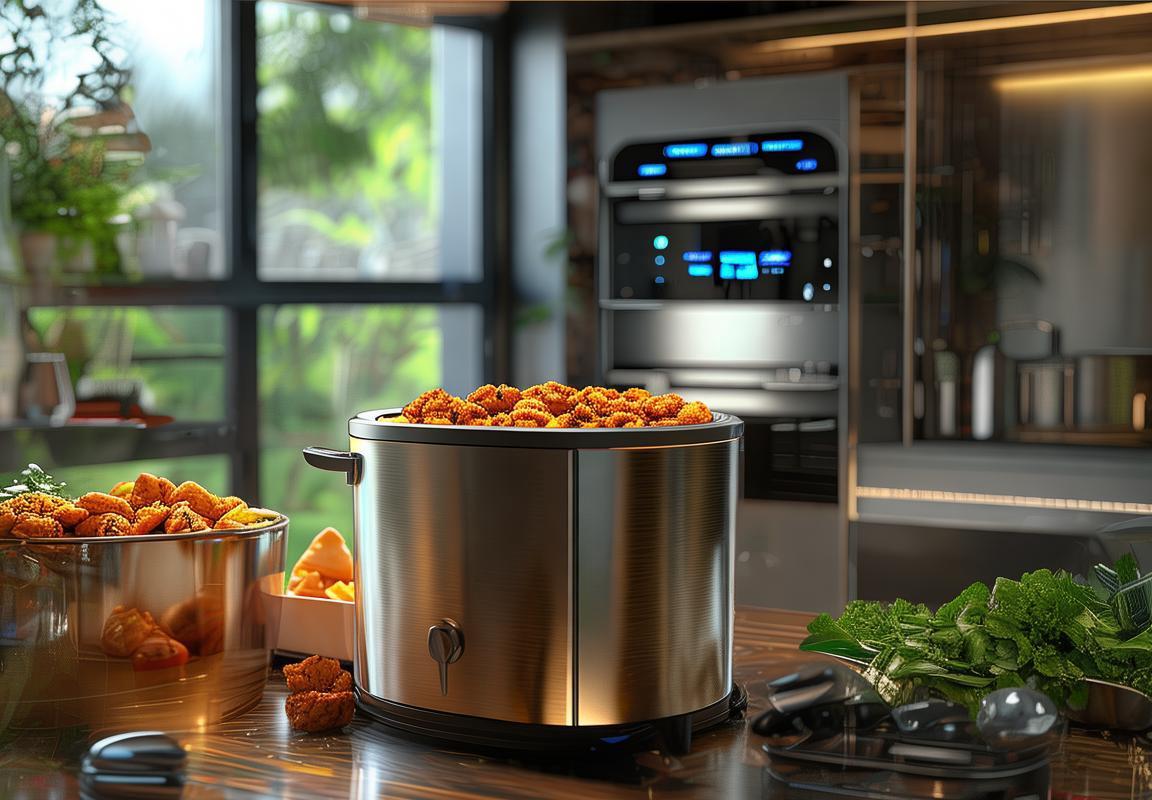
Conclusion
The air fryer market has experienced a remarkable surge in popularity, driven by the increasing health consciousness among consumers and the quest for healthier cooking alternatives. As we delve into the data-driven insights that have shaped this market, it’s clear that innovation, sustainability, and social responsibility are at the forefront of consumer preferences. From the rise of compact and energy-efficient models to the integration of smart technology, the air fryer market is poised for continued growth. Let’s explore some of the key findings and predictions that are shaping the future of this dynamic industry.
Consumer Health and WellnessThe growing awareness of health and wellness has significantly influenced the air fryer market. Data shows that consumers are increasingly gravitating towards cooking methods that reduce oil usage, such as air frying. This trend is likely to persist, with a focus on products that offer healthier cooking options without compromising on taste or convenience.
Technological IntegrationSmart appliances have become a norm in modern households, and air fryers are no exception. The integration of smart technology in air fryers, such as remote control and recipe apps, has made cooking more accessible and enjoyable. As technology continues to evolve, we can expect to see even more innovative features that enhance user experience and streamline the cooking process.
Sustainability and Eco-Friendly PracticesSustainability is a critical factor in the air fryer market. Manufacturers are responding to consumer demands for eco-friendly products by using recycled materials, reducing packaging waste, and promoting energy-efficient appliances. The data indicates that consumers are willing to pay a premium for products that align with their environmental values.
Competitive Landscape ShiftsThe competitive landscape for air fryer manufacturers is dynamic, with a diverse range of players from established appliance brands to niche startups. As the market matures, we’re seeing a shift towards consolidation, with larger companies acquiring smaller, innovative brands to expand their product lines. This trend is likely to continue, as companies seek to offer a wider range of products that cater to different consumer segments.
Global Market ExpansionThe air fryer market has expanded beyond its traditional strongholds in North America and Europe. Emerging markets, particularly in Asia and South America, are showing significant growth. This expansion is driven by rising disposable incomes and a growing preference for healthier, Western-style cooking methods. As these markets continue to develop, they present a vast opportunity for manufacturers to tap into new consumer bases.
Regulatory Compliance and CertificationRegulatory compliance remains a key concern for air fryer manufacturers. The need to meet safety and quality standards is paramount, and certification bodies like BSCI play a crucial role in ensuring that products meet international standards. As regulations evolve, manufacturers must stay informed and adapt to ensure their products remain compliant and competitive.
Marketing and Branding StrategiesEffective marketing and branding strategies are essential for air fryer manufacturers to stand out in a crowded market. Data indicates that successful brands often leverage social media and influencer partnerships to reach consumers. Additionally, highlighting the unique selling points of their products, such as health benefits and ease of use, can help differentiate them from competitors.
Product Innovation and DiversificationInnovation is a cornerstone of the air fryer market. Manufacturers are constantly seeking new ways to improve existing products and develop new categories. From air fryer ovens that combine air frying with other cooking methods to air fryer attachments for grilling or roasting, the possibilities for product diversification are vast. As consumers seek a variety of cooking options, manufacturers must be ready to innovate and meet their evolving needs.
Consumer Trust and Brand ReputationThe trust consumers place in a brand is invaluable in the air fryer market. Brands that prioritize social responsibility and ethical manufacturing practices, such as those audited by BSCI, often enjoy higher levels of consumer trust. This trust translates into repeat purchases and positive word-of-mouth, which are key drivers of long-term success.
In conclusion, the air fryer market is characterized by rapid innovation, shifting consumer preferences, and a growing emphasis on sustainability and social responsibility. As the market continues to evolve, manufacturers that stay attuned to these trends and invest in quality, innovation, and ethical practices will be well-positioned to thrive in the years to come.